Is Zevia Healthy (From a Nutritionist)?
In this blog post, I’ll review the question of whether Zevia is healthy or not? Find out what this product’s nutrition pros and cons are, plus other options to consider. For most people, drinking Zevia in moderation is healthier than drinking sugar-sweetened beverages as long as you aren’t sensitive to stevia, caffeine, natural flavors.
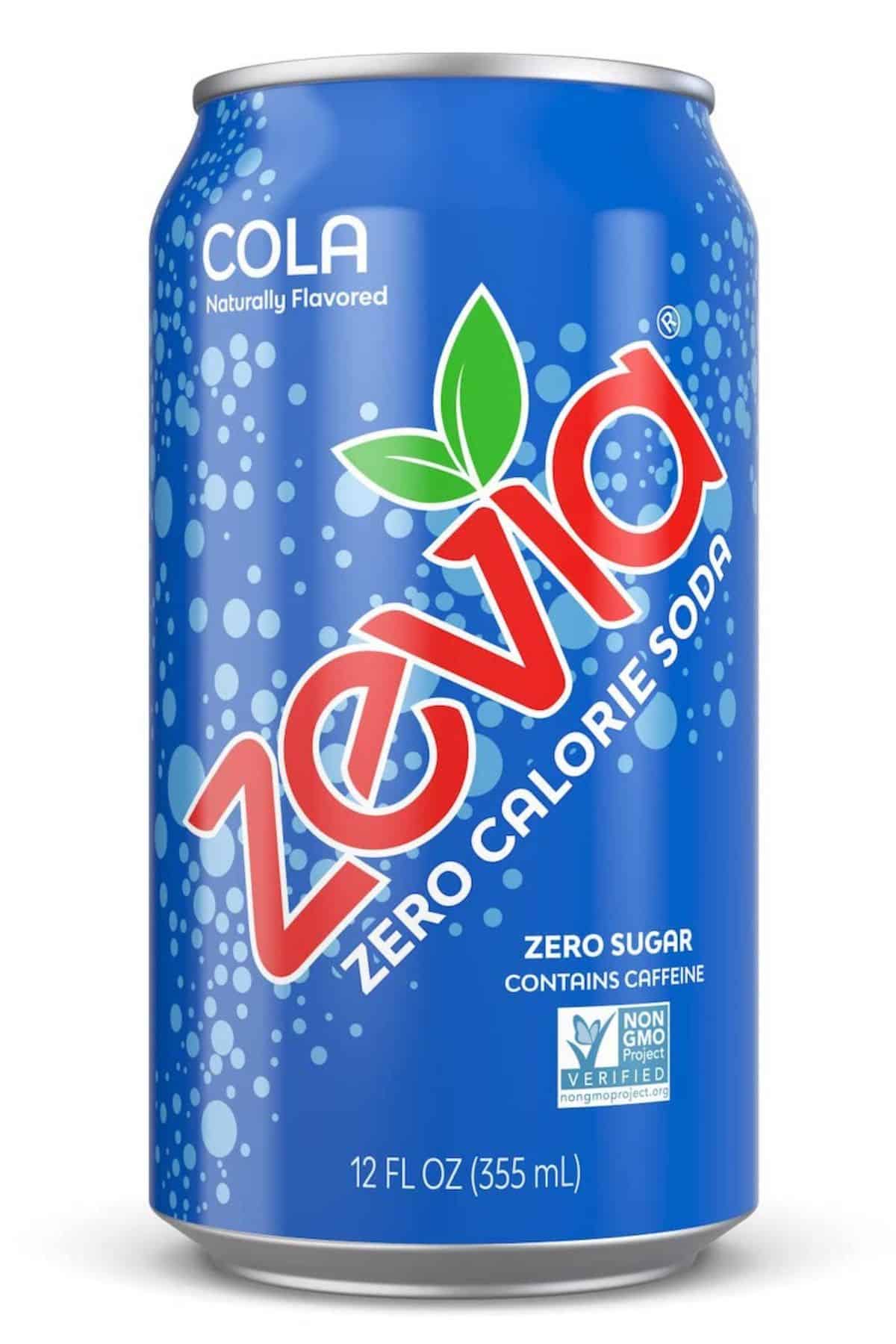
Zevia Facts
Zevia is a beverage company that makes various drinks, including sodas, energy drinks, teas, mixers, and drinks for kids.
Zevia drinks are naturally sweetened, sugar-free, allergen-free, gluten-free, non-GMO, vegan, and contain zero calories. The company launched a range of drinks to address the global health problems caused by excess sugar consumption.
The basic ingredients of Zevia drinks are carbonated water, organic stevia leaf extract, natural flavors, and citric acid. They are marketed as zero-calorie drinks or a zero-calorie soda to replace traditional sodas.
There are variations; for example, the tea range contains black, green, or Earl Gray tea, and some Zevia drinks are also caffeinated. Some flavors contain tartaric acid, quinine, or ginger extract.
According to the company, Zevia drinks are for people “who want to live their best”. The Zevia drinks range includes:
Sodas
- Black Cherry
- Caffeine Free Cola
- Cherry Cola (caffeinated)
- Cola (caffeinated)
- Creamy Root Beer
- Cream Soda
- Dr. Zevia (caffeinated)
- Ginger Ale
- Ginger Root Beer
- Grape
- Grapefruit Citrus
- Lemon Lime Twist
- Mountain Zevia (caffeinated)
- Orange
- Strawberry
Energy drinks
- Raspberry Lime Energy (caffeinated)
- Mango Ginger Energy (caffeinated)
- Grapefruit Energy (caffeinated)
- Kola Energy (caffeinated)
- Pineapple Paradise Energy (caffeinated)
- Strawberry Kiwi Energy (caffeinated)
Tea
- Black Tea Raspberry (contains caffeine)
- Black Tea Peach (contains caffeine)
- Caffeine-Free Hibiscus Tea Passionfruit
- Earl Grey Tea Blood Orange (contains caffeine)
- Green Tea (contains caffeine)
- Black Tea (contains caffeine)
- Caffeine Free Black Tea Lemon
- Black Tea Lemon (contains caffeine)
Mixers
- Ginger Beer Mixer
- Tonic Water Mixer
- Lemon Lime with Bitters Mixer
Kids
- Watermelon
- Cran-Raspberry
- Strawberry Lemonade
- Fruit Punch
- Orange Cream
- Fizzy Apple
The company’s online store also offers variety packs for each range.
Zevia Ingredients
Zevia’s main ingredients are carbonated water, stevia leaf extract, natural flavors, and citric acid.
The teas contain organic brewed tea, and the energy drinks contain organic caffeine. The ingredients list on the company website does not specify what the natural flavors are derived from.
For the basic Zevia cola flavor, the ingredient list includes:
- Carbonated water
- Natural flavors
- Stevia leaf extract
- Tartaric acid
- Caffeine
- Citric acid
Here is everything you should know about the main ingredients of Zevia.
Carbonated water
Carbonated water is fizzy water. It contains tiny bubbles that give it an effervescent quality.
Carbonated water may be good for digestion and can help relieve constipation. Studies have also shown that carbonated water can make you feel fuller than regular water, which may benefit weight loss.
Organic stevia leaf extract
Stevia leaf extract is a natural sweetener up to 400 times sweeter than regular granulated sugar but barely contains calories. According to research, stevia may have some health benefits. It may help reduce cholesterol, and studies show it can help fight some types of cancer.
However, more recent studies have shown that stevia may not be as healthy as perceived. Research has revealed that stevia can adversely affect the gut microbiome even in low doses.
Natural flavors
There is no official definition of natural flavoring, and there’s a conflict in food labeling about what natural flavors are. It means that manufacturers can describe any food as natural flavoring.
Since Zevia does not specify the nature of the natural flavors in its beverages, it’s difficult to know whether it is healthy. Some “natural flavors” are produced with synthetic products and processes, for example, enzyme-assisted extraction, which uses high heat and solvents.
Citric acid
Citric acid is a weak acid that naturally occurs in citrus fruit. It’s a common ingredient in manufactured beverages because it gives the drink a citrusy flavor.
Although it’s not an unhealthy ingredient, it may be corrosive, and excessive or long-term use can erode the enamel on your teeth and cause dental problems.
Caffeine
The caffeinated Zevia drinks closely follow their regular soda counterparts.
For example, Mountain Zevia has a similar caffeine content as Mountaindew and Zevia Cola and Cherry Cola have similar caffeine content to Coca-Cola or Pepsi. Caffeine has many health benefits, but people are sensitive to it, and children should avoid caffeinated Zevia drinks entirely.
If you have caffeinated Zevia drinks, do so in moderation. Even though caffeine is natural, it is a stimulant, and too much of it can cause negative effects like anxiety, insomnia, elevated blood pressure, and jitters.
Organic tea
Zevia tea drinks contain black, green, or Earl Gray tea, all pain tea types that contain polyphenols, caffeine, and flavones – all natural and healthy compounds.
Nutrition Pros
Refined sugar has many potential health risks, including type 2 diabetes, obesity, heart disease, and liver disease.
Avoiding sugar-sweetened beverages can help reduce the risk of these health conditions, increase energy, reduce cravings, improve weight management, and reduce inflammation.
Zevia products have no added sugars and so are a good alternative to sugar-sweetened beverages.
Nutrition Cons
Although Zevia is sold as a healthy beverage, research doesn’t back up using sugar-free sodas as a healthy alternative.
The World Health Organization recommends not to use sweeteners like stevia for weight control. Instead, the organization recommends reducing sweetness in diets early on for improved health.
In an animal study, it was found that stevia increased belly fat, but there’s no concrete proof that it would do the same in humans. Research has also shown that stevia can negatively change the gut microbiome.
Additionally, Zevia comes in aluminum cans which, although recyclable to an extent, add to overall consumer waste. Zevia is expensive compared to water which is free for most people.
For most people, it would be healthier to consume water over Zevia.
FAQs
Zevia has some health benefits, especially the Zevia drinks made with tea rich in polyphenols, antioxidants, and other healthy compounds. However, plain carbonated water or water with natural fruit flavors are likely healthier and less expensive options.
Yes, it is a healthier option for most people, but there are better options than you can choose including water or carbonated water with freshly-squeezed fruit juice.
In moderation, most people can have Zevia beverages. There’s also a range of Zevia drinks made especially for kids. Children and those sensitive to caffeine should avoid caffeinated Zevia drinks like the Zevia energy drinks range, tea drinks that contain Earl Gray, black or green tea, Mountain Zevia, Cola, Cherry Cola, and Dr. Zevia.
More Packaged Water Reviews
Conclusions
Zevia drinks are sugar-free and calorie-free and can suit most dietary requirements. They’re a relatively healthy choice if you are not sensitive to stevia and only enjoy them in moderation. It would, however, be better to make a refreshing drink at home by infusing fruit into water or having plain carbonated water. Choosing unprocessed foods and beverages is always better and more cost-effective.
Don’t forget to join my newsletter list to get exclusive clean eating recipes and tips. The newsletter is 100% free with no spam; unsubscribe anytime.
About the Author: Carrie Forrest has a master’s degree in public health with a specialty in nutrition and is a certified holistic nutritionist. She is a top wellness and food blogger with over 5 million annual visitors to her site. Carrie has an incredible story of recovery from chronic illness and is passionate about helping other women transform their health. Send her a message through her contact form.
Note: this post is for informational purposes only and is not intended as medical advice. Please consult your healthcare provider for recommendations related to your individual situation.


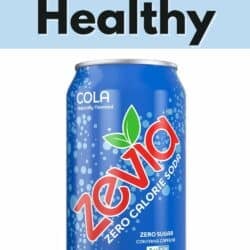
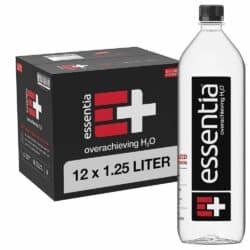
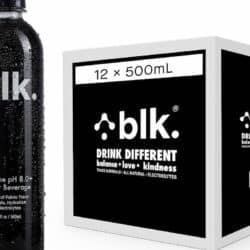
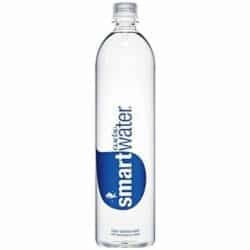
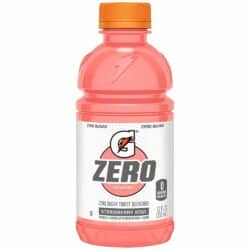




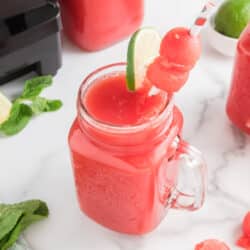









I think they are the perfect treat! Much better than certain options, for sure. I also like that the kids line is mini cans, which is just right for my daughter. She asks for one when we have pizza night. I also keep the ginger ale on hand for upset tummies.
I didn’t know about the mini cans. That’s a great option for special treats!